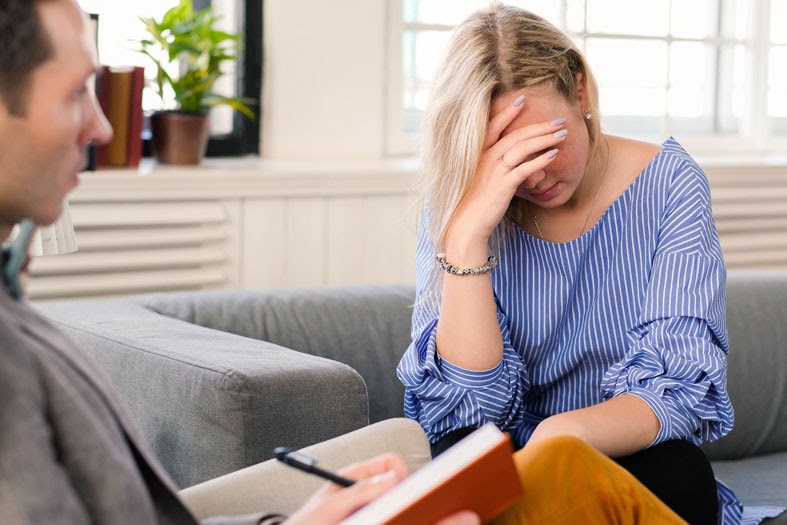According to the Tennessee Bureau of Investigation, around 70,000 Tennesseans are living with an addiction to opioids. If you’re experiencing opioid use disorder (OUD), you’re clearly not alone. At ReVIDA® Recovery, our mission is to help you reclaim your life from opioids. No matter how hopeless your situation may feel, recovery is always possible, especially with the right kind of treatment.
What is Vicodin®?
Among the many widely-used opioid medications is Vicodin®, which is a mix of hydrocodone and acetaminophen. Often prescribed in cases of severe injury or post-surgery, Vicodin® can easily become habit-forming and its risk of dependency is high. It’s not an easy medication to stop taking, even if your dosage is low.
When Vicodin® enters the bloodstream, it binds to the brain’s opioid receptors, creating feelings of relaxation and euphoria. While many cases of Vicodin® dependence begin when a patient starts using it illicitly or outside of a prescription, it is also possible to form an addiction while following your doctor’s orders. This is mainly because it doesn’t remain effective at a singular dosage.
Over time, an individual can build up a tolerance to Vicodin® – meaning they’ll need to take more and more to experience its effects. When a dose is missed or when someone takes a lower dose than they’re used to, withdrawal symptoms can appear. This makes it difficult to walk away from.
Opioid receptors are located throughout the body, which means Vicodin® can affect things like:
- Your spine
- Your brain
- Your stomach
- Your liver
- Your respiratory system
Because of this, side effects are expected. Some of the short-term side effects of Vicodin® use include:
- Gastrointestinal distress like nausea, constipation, and diarrhea
- Slowed breathing
- Impaired judgment
- Fatigue
- Lightheadedness or dizziness
- Loss of consciousness
- Confusion
Some side effects can impact your health in the long term. Some of Vicodin®’s long-term side effects include:
- Mood changes or mood disorders
- Panic attacks
- Memory problems
- Nervous system complications
- Injury resulting from impaired judgment or confusion
With side effects like these, it’s no surprise that doctors don’t prescribe Vicodin® for long-term use. The goal of Vicodin® prescriptions is to help the patient through the worst of their pain so they can heal quickly and efficiently.
Unfortunately, withdrawals are common with medications like Vicodin®. The body and brain become used to this medication, and when a dosage is lowered or it stops being taken, the body reacts. Withdrawals make it hard for many to walk away from opioids because the symptoms are often uncomfortable and make it difficult to carry on with daily activities.
Some of these withdrawal symptoms can look like:
- Tremors
- Insomnia
- Panic attacks
- Diarrhea
- Cold sweats
- Nausea
- Vomiting
- Poor appetite and weight loss
- Nightmares
- Migraines
- Restlessness
If you’re experiencing these withdrawal symptoms or it’s difficult for you to stop taking Vicodin®, chances are, it’s time to seek treatment. While withdrawals are rarely fatal, they can be painful and uncomfortable, which gets in the way of your recovery. Treatment can help to alleviate some of these symptoms so you can focus on what really matters – your recovery.
How is Vicodin® Administered?
The most common way Vicodin® is administered is in tablet form. Dosages start at 5mg/300mg (5mg of hydrocodone and 300 mg of acetaminophen) and can go up to 10mg/300mg. Initially, doctors might prescribe a low dose of Vicodin® and move up to a higher dosage depending on the severity of the patient’s pain.
When used illicitly, this medication can also be crushed, snorted, or injected. This is a dangerous practice. Buying Vicodin® on the streets or online is always risky because you don’t know what it has been mixed with. In recent years, there have been reports of fentanyl being mixed into Vicodin® to amplify its effects. Dealers will also mix Vicodin® with fentanyl so they can move more drugs or save money. Because fentanyl is much more potent than Vicodin®, it’s easy to overdose when taking it.
Vicodin® Statistics
Tennessee currently rates 3rd in the country for prescription drug misuse. Let’s take a look at some of Vicodin®’s national statistics:
- 4,715,782 opioid prescriptions were written in 2021.
- There were 3,032 opioid overdose deaths in 2020.
- There were over 7,000 nonfatal prescription overdose inpatient stays in 2020.
- There were almost 9,000 nonfatal outpatient visits because of opioids in 2020.
- From 1999-2020, the United States lost almost half a million people to opioid overdose.
How to Know if You Need Treatment for Vicodin® Addiction
First and foremost, if you’re experiencing withdrawals from Vicodin®, it’s probably time to seek treatment. Withdrawal symptoms aren’t just uncomfortable – they make it difficult to stop taking Vicodin®. They can also lead to a relapse if they’re bad enough. Here are some other signs that you might be ready for addiction treatment:
- You’re buying Vicodin® illegally
- You’re finding it difficult to follow your doctor’s prescription and you’re taking more than you should
- You’re thinking about Vicodin® throughout the day and it’s hard to think about anything else
- You’re isolating yourself or you’re not leaving the house because you don’t want to be too far away from your medication
- You’re finding it hard to control how much Vicodin® you take
- You’re abandoning or ignoring your relationships
- Your work life or school life is becoming increasingly more difficult to sustain
- You feel distressed or lonely if you don’t have access to Vicodin®
- You’re using Vicodin® to alleviate emotional pain, or you’re using it for reasons other than what it has been prescribed for
ReVIDA® Recovery Treatment Options For Vicodin® Use Disorder
At ReVIDA® Recovery, we have seen firsthand how effective, evidence-based treatment can be in eliminating OUD. It doesn’t matter how long you’ve been taking Vicodin® or how impossible it feels to stop right now – recovery is always possible. Let’s talk about some of the treatment options we offer here that could be right for you.
Medication-Assisted Treatment (MAT)
While you’re here for MAT, you’ll be closely monitored by a compassionate and knowledgeable staff. Medications are available that can help in alleviating withdrawal symptoms and guiding you safely into recovery. You’ll also have access to resources that can help you on your journey moving forward, including individual counseling, group counseling, and support groups. In a MAT program, we use medications alongside traditional therapy to guide you away from Vicodin® and into a healthy life of recovery.
You’ll also have the option to move forward with our outpatient treatment program. If a higher level of care is warranted, we will provide referrals for a local inpatient or residential treatment program. Your clinician will go over all of your options to set you up for success.
Buprenorphine (Suboxone®) Treatment
Medication-assisted treatment, or MAT, is a safe and evidence-based way to treat OUD. At ReVIDA® Recovery, we support the use of buprenorphine (Suboxone®) because it has been proven to reduce cravings while working to prevent relapse. In order to receive buprenorphine (Suboxone®) treatment, you will have to be opioid-free for 24 hours.
Outpatient Rehab Services
We believe that both individual and group therapy are critical components in the treatment of OUD – especially if you’re looking for long-term recovery. This is a safe and supportive space where you will learn how to manage your triggers and create healthy coping mechanisms. Our behavioral healthcare team is composed of licensed therapists, certified counselors, care coordinators, and peer recovery specialists who are standing by and ready to help. If we can treat your addiction where it started, at its roots, your chance of recovery is greater than if we were to simply treat your withdrawal symptoms.
At ReVIDA® Recovery, we’re standing by to help you reclaim your life from Vicodin®. Recovery is possible, and you can start your journey to wellness whenever you’re ready. To learn more or to schedule an appointment, please call us today at 423-631-0432.

FAQs
If left untreated, Vicodin® addiction can lead to a variety of mental and physical health problems. It binds to your opioid receptors, which are located all over the body and impact your nervous system, gastrointestinal tract, brain, and more.
Serious side effects of long-term Vicodin® use include gastrointestinal distress, panic attacks, confusion, and poor decision-making. Vicodin® can also impact liver and brain function.
Vicodin® addiction can change the neural pathways and chemistry within the brain, which can promote long-term mental health issues like anxiety and depression.









